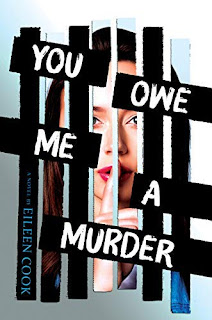Really cute cover, isn’t it?
I was really excited when I saw Joy Avon had written the next book in her Book Tea Shop series. I really did enjoy In Peppermint Peril and I assumed Sweet Tea and Secrets would be no different.
I’m going to sum up my experience with this book in a really concise way and it’s going to feel a little cold, but here it is: you won’t regret reading this book because it is enjoyable, but if you don’t read it, you will miss nothing you couldn’t get from a million other books (and honestly, done much more expertly).
As much as I really did find this to be a quick, easy, light read, there were some things that just ruined the experience for me.
I couldn’t stand to read Joy Avon’s attempts at dialogue. It was so awkward! She uses dialogue for things that could be shown in exposition, to over explain things to lead a reader, to do anything but develop character: all the characters talk exactly the same! They all constantly answer questions with the phrase “of course,” for example. They all deliver frequent monologues. I suspect they all talk like Joy Avon, to be honest. While the characters are charming and nice, their dialogue is uncomfortable and dull. The big reveal goes on for pages because the person who reveals the secret repeats what has already been said over and over. It’s really, really hard to read because it’s just bad writing.
There were two major reveals in this books. The first reveal was no shocker. I knew the answer at about 18% into the book. The first time I met the character who solves the whole thing (trying not to give spoilers), I was like, “yep.” The second was a little more surprising, especially because as a reader you kind of get the sense that the first reveal will make sense of the whole plot, but even with that going for it, Avon spoon-feeds the reader too much. There are too many blatant clues so that even though you’re surprised that there’s another twist, by the time you get the answer you are already prepared and it’s a pretty big let down (not to mention it comes with even more of that painful dialogue).
The last thing that really bugged me about this book was the dynamic between Falk and Callie. As I wrote about in my review of book one, Falk and Callie don’t seem to have much chemistry to start with and, once again, she seems to annoy the fire out of him about 90% of the time. I can kind of forgive that because if I’m being honest, I annoy my husband about that much out of every day and we’ve been married a decade. At the end of the first book, I was willing to buy that something happens between them even though it’s left open and we don’t see what.
The whole. Second. Book. Callie is pining over Falk and wondering why he’s ignoring her emails when we find out that nothing happens after their flirtation at Christmas and it been six freaking months since she saw him. Seriously, Callie? What did you think: that a forty something year old man is gonna just wait around for six months for a girl he flirted with for two weeks?
Yes. Apparently the answer is yes. This is a spoiler, but one that you are going to expect if you’ve, like, ever read a book. He is feeling insecure, but still likes her and they end the book together in a completely bizarre and sudden coupling that feels jarring and inauthentic, but somehow sweet.
Honestly, that’s the whole book. It never feels like it could be real, it’s not well written, but I just kept reading it and actually found it super pleasant. I have no idea how to rate it, but like I said, if you read it, you’ll probably be glad you did, but you aren’t missing anything incredible if you don’t.























